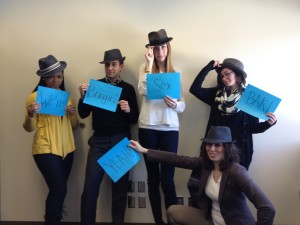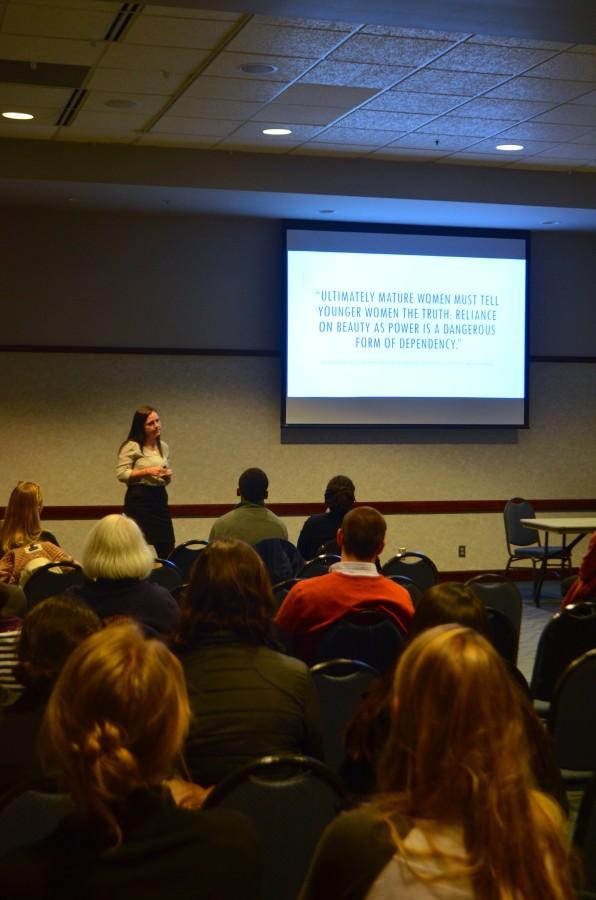
Edward de St. Aubin, this semester’s faculty fellow in the Gender and Sexuality Resource Center, said he wants the Marquette community to find liberation by speaking openly about the connections between sexuality and faith.
As the faculty fellow, de St. Aubin is researching college students at the doctorate, undergraduate and graduate levels to learn how sex and religion intersect in their lives as well as their views on gender roles and romantic relationships. He used quantitative and qualitative surveys to obtain data from about 400 Marquette students and 800 University of Wisconsin-Milwaukee students.
“I think issues and privilege around gender sometimes get overlooked and that can lead to really horrendous things like sexual assault and domestic violence, things we definitely want to avoid,” de St. Aubin said.
His preliminary findings will be discussed at the “Bringing SexBAKI (Behaviors, Attitudes, Knowledge and Identity)” event Tuesday at 7 p.m.
de St. Aubin found that negativity and guilt commonly perpetrate sexuality dialogue, which stifles constructive conversation.
“Open discussions around sex don’t happen, even between roommates or lovers,” de St. Aubin said. “I encourage open and honest dialogue about why certain things happen on our campus and what healthy sexuality looks like.”
A key component to achieving healthy sexuality, which de St. Aubin said is different for every person, is eliminating “micro-aggressions,” which easily sneak into everyday conversation and can oppress sexual minorities.
“Micro-aggressions are little invalidating things that people say about sex or gender like ‘that’s so gay,’ ‘no homo’ or ‘make me a sandwich,’” de St. Aubin said. “Most people in our culture, certainly on a university campus, are not outwardly sexist but these micro-aggressions exist everywhere.”
College students play a role in every phase of de St. Aubin’s research. He will pool their ideas to determine the best response to micro-aggressions.
“I hope people think about authentic ways they can intervene when they hear micro-aggressions around sex or gender, because I don’t have that answer,” de St. Aubin said. “I think it’s going to take young adult students who know (young adult) culture.”
A Marquette psychology professor since 1999, de St. Aubin applied to become a GSRC Faculty Fellow and was approved by a committee of GSRC advisory board members, which includes GSRC Director Susannah Bartlow. The application process happens once a year and selects fellows for each semester. Angelique Harris, an assistant professor in the department of social and cultural sciences, served as the fellow last semester.
“My hope is that the Faculty Fellow program contributes to more of a national reputation for Marquette’s work on gender and sexuality,” Bartlow said. “(I want it) to develop the network of scholars on campus, to raise visibility of the center’s academic mission and increase the number of students and colleagues who use the center.”
Bartlow added that GSRC fellows contribute to a strong network of scholars that builds with each year.
John Grych, a professor of psychology, said he likes how the GSRC Faculty Fellows typically work with a variety of academic departments.
“Interdisciplinary learning is valuable because it offers diverse perspectives on a particular topic, and encourages students to think in complex ways about complex issues,” Grych said. “I do think that Marquette would benefit from more interdisciplinary teaching and research.”
Grych worked with de St. Aubin in the past and said the experience was enlightening.
“de St. Aubin is a creative and rigorous scholar who is committed to better understanding how individuals develop and strive to live meaningful and fulfilling lives,” Grych said. “He has a holistic approach that seeks to appreciate people in all their complexity.”
This semester’s fellowship has a heavy emphasis on the concept of intersectionality.
“Within the field of gender and sexuality research, there’s a general trend to address gender and sexuality as the intersection of other identities; that it can’t be in isolation from other issues,” Bartlow said.
de St. Aubin said he is examining how sex and faith intersect with race, socio-economic status, privilege and power.
“To be a young gay African American male is oftentimes a different experience than being a gay Caucasian male so we need to understand those things better,” de St. Aubin said.
Overall, de St. Aubin said he is grateful to have had the opportunity to collaborate with UW-Milwaukee students to collect the data.
“UW-Milwaukee was instrumental in getting the students to take the surveys,” de St. Aubin said. “We couldn’t have done it without them.”
A final presentation, ‘Intersections of Sex and Faith,’ will offer an in-depth look at all of de St. Aubin’s research. It will be given on April 14.


